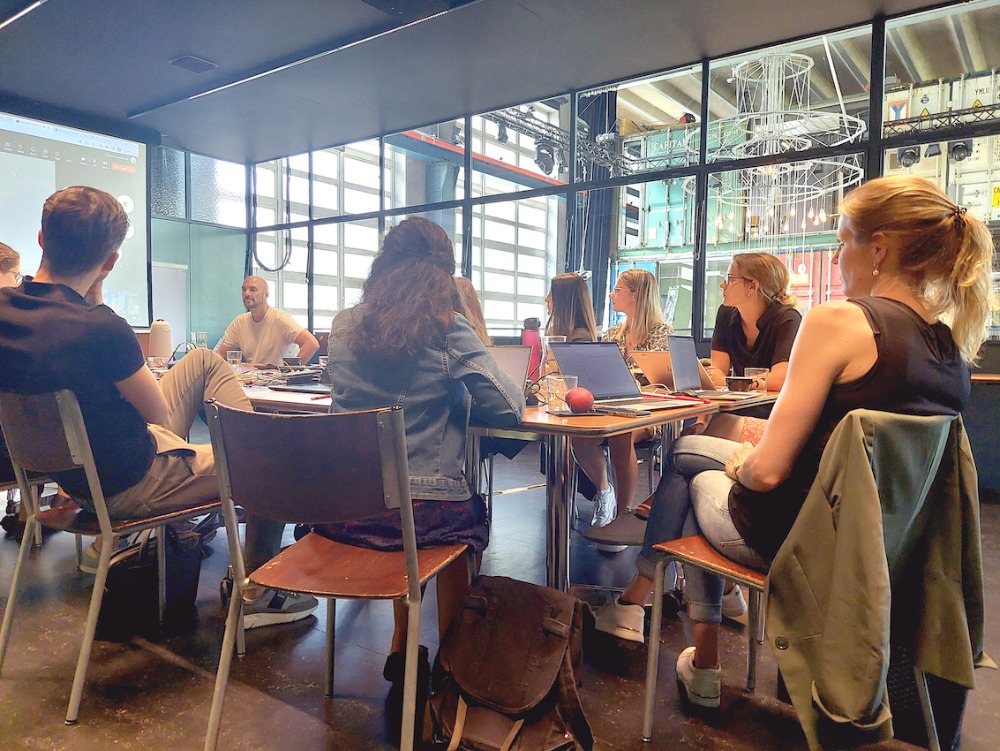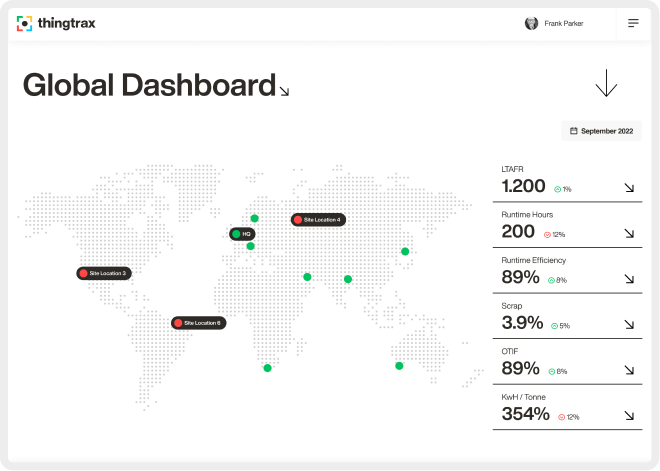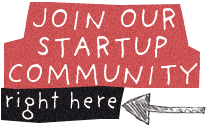Four Tips to Help Businesses Survive and Thrive Beyond Coronavirus

by Startacus Admin
James Allum, VP and Head of Europe at global payments challenger Payoneer considers how small and medium size businesses can survive and succeed beyond the pandemic
While the world is still very much in the throes of the coronavirus pandemic, its long-term impact on our lives has, arguably, become a little clearer. Businesses all over the world are beginning to consider how it will impact not only their revenues but, all aspects of their operations, notably where and how their employees will continue working in the long run.
 With the global economy in a constant state of flux, entire industries are shifting to and from remote working arrangements and businesses are attempting to carry out vital processes in a continually changing environment. With the end date for this crisis so difficult, if not impossible, to predict, what practical measures can businesses take to succeed in this period of prolonged uncertainty?
With the global economy in a constant state of flux, entire industries are shifting to and from remote working arrangements and businesses are attempting to carry out vital processes in a continually changing environment. With the end date for this crisis so difficult, if not impossible, to predict, what practical measures can businesses take to succeed in this period of prolonged uncertainty?
Evaluating Your Office Structure
It’s fairly clear by now that remote work is both a viable option for many companies and a way to cut down on costs during this time of economic uncertainty. So much so, that the work-from-home template has caused many to reconsider investing in large and expensive office spaces altogether.
One viable option to reduce costs is the hub-and-spoke office model, in which employees generally work from home but have the option to regularly check in to a local office. This allows them to reconnect with colleagues face to face without needing to commute to a company headquarters, which may be much further away. Such a model has real benefits to companies who no longer need to rent large spaces in expensive cities and can instead take up smaller spaces in less expensive locations, closer to where clusters of their workforce lives.
.jpeg) As no one can accurately predict when businesses will be able to return to what was once normal operations, now is the time to examine whether investing in a hub-and-spoke model could be more beneficial.
As no one can accurately predict when businesses will be able to return to what was once normal operations, now is the time to examine whether investing in a hub-and-spoke model could be more beneficial.
Supporting Your Workforce
During such a difficult period throughout the world, and as routines are disrupted, it’s important for employers to make health and wellbeing a top priority. By having flexible policies in place for employees, particularly those with small children or elderly relatives, the work environment becomes supportive and inclusive. This approach can, and should, also be replicated in outward communications to customers, highlighting a culture that is understanding, professional and agile.
Businesses must remember that this is not a standard work-from-home environment. Many employees are in the dual role of worker and caregiver, and an understanding and responsive management style is critical to avoiding employee loneliness or burnout. At the same time, it’s critical for managers to stay connected to their employees to ensure workloads are managed correctly.
Some ways managers can do this is through regular check-ins with their team. Its important that remote employees know they have a range of ways to contact their managers and companies should invest in technologies, such as video chat and messaging applications, to make this easier. Project management software can also help teams collaborate and be aware of what each is working on and when, which can go a long way when each member is working more flexible hours than usual.
Adapt
 By thinking outside of the box, businesses can strengthen relationships with customers and build tighter bonds with suppliers and partners. For example, in the eCommerce world, we have seen Amazon preventing price increases on necessary medical supplies, to protect consumers. There are also examples of marketplaces easing policies to protect sellers in the case of delivery delays, and some have waived sellers’ refund fees to mitigate revenue losses at a time of increased consumer uncertainty.
By thinking outside of the box, businesses can strengthen relationships with customers and build tighter bonds with suppliers and partners. For example, in the eCommerce world, we have seen Amazon preventing price increases on necessary medical supplies, to protect consumers. There are also examples of marketplaces easing policies to protect sellers in the case of delivery delays, and some have waived sellers’ refund fees to mitigate revenue losses at a time of increased consumer uncertainty.
Payoneer has worked with e-commerce merchants to help them identify new infrastructure partners and routes to market with their product or service. Additionally, it’s important for businesses to expand into new territories and build new partnerships and client rosters. There are a number of ways this can be done, including by branching out into new marketplaces, localising your website for different countries and investing in customer support to meet the needs of a more global customer base.
For freelancers, its a good time to update your portfolio and work on your digital marketing skills to improve your chances of picking up more business. As noted in Payoneer’s recent freelance report, it’s a great time for the industry as companies realise the benefit of a more flexible workforce. Additionally, it’s important to reach out to past and current clients and enquire into opportunities they may have. Where demand slumped at the beginning of the pandemic, it is now rapidly increasing, and freelancers need to be proactive and up to speed to make the most of it.
.jpeg) As we navigate the uncertain waters of this world health epidemic, we face a stark reminder of the importance of planning ahead. Now is the time to ensure business continuity processes are in place, and that you are prepared, as much as possible, for the next unpredictable event.
As we navigate the uncertain waters of this world health epidemic, we face a stark reminder of the importance of planning ahead. Now is the time to ensure business continuity processes are in place, and that you are prepared, as much as possible, for the next unpredictable event.
Diversify
To protect against particular markets or products struggling in a time of crisis, businesses can look to diversify risk by branching out into new markets and expanding their offerings. This applies to both the demand and the supply side of a business, and can help to spread the impact of potential losses. Certain new products might hold the key for driving revenue during a difficult time, or making changes to partners in the supply chain could ensure that stability is maintained for customers.
Conclusion
In summary, below are the key questions that decision makers need to be focused on if they are to reduce the impact of the coronavirus pandemic on their business:
-
Evaluating Your Office Structure – are you optimizing your office structure? Is now the time to consider alternative ways to manage your office’s day-to-day life?
-
Support Your Workforce– from the wellbeing of employees, to customer service and outward communications, how can you ensure you maintain a culture of understanding?
-
Adapt – what can you do to preserve relationships with customers and suppliers?
-
Diversify – can you identify an alternative product, solution or territory that would provide respite from the challenging economic climate?
These are undoubtedly unprecedented times but it’s always those who are prepared who will prosper. 
James Allum
James joined Payoneer from the cross-border payment and currency exchange platform freemarket which he helped launch in 2015. Prior to that he was CCO of the online alternative and e-commerce cash payment method Ukash that successfully sold in 2015 to CVC for integration into the Paysafe group. James started his financial services career at Western Union where his roles included head of U.K. and Ireland for their consumer business and head of Europe for their B2B division.
Payoneer
Payoneer’s mission is to empower businesses to go beyond – beyond borders, limits and expectations. In today’s digital world, Payoneer enables any business of any size from anywhere to access new economic opportunities by making it possible to transact as easily globally as they do locally.
Payoneer’s digital platform streamlines global commerce for millions of small businesses, marketplaces and enterprises from 200 countries and territories. Leveraging its robust technology, compliance, operations and banking infrastructure, Payoneer delivers a suite of services that includes cross-border payments, working capital, tax solutions, merchant services and risk management. Powering growth for customers ranging from aspiring entrepreneurs in emerging markets to the world’s leading digital brands like Airbnb, Amazon, Google and Upwork, Payoneer makes global commerce easy and secure. Founded in 2005, Payoneer is profitable and has a team based all around the world.
Subscribe to our newsletter
If you would like to receive our startup themed newsletter, full of the latest startup opportunities, events, news, stories, tips and advice, then sign up here. How Manufacturing Businesses Can Reduce Energy Costs
How Manufacturing Businesses Can Reduce Energy CostsGot a business in the manufacturing sector? These tips on how you can reduce energy costs while being more sustainable are well worth a read...
 SureIn Secures €4M to Close the SMB Insurance Gap
SureIn Secures €4M to Close the SMB Insurance GapInnovative InsurTech startup SureIn announces a €4M Seed round to further its mission of making insurance easy, transparent and hassle-free for SMBs.
 How IoT Is Revolutionising Consumers' Daily Lives
How IoT Is Revolutionising Consumers' Daily Lives Nassia Skoulikariti, Director of IoT Programmes, Mobile Ecosystem Forum shares some insights on how IoT is having a significant impact on all our lives.
 How to invest in tech companies with the help of AI
How to invest in tech companies with the help of AIRoger James Hamilton, Founder and CEO of Genius Group, a world-leading entrepreneur Edtech and education group, discusses how introducing a globalized curriculum will help better prepare students.
 SuperFi raises $1M pre-seed funding round
SuperFi raises $1M pre-seed funding roundSuperFi, the debt prevention platform, has announced a $1m pre-seed funding round to support people during the cost of living crisis.
 Startups rely on AI & sustainability for new partnerships
Startups rely on AI & sustainability for new partnerships41 startups from 13 countries, including the UK, have been selected for the 8th Kickstart Innovation program, one of Europe’s leading innovation platforms.
 Another Round closes £300k Seed round to revolutionise personal training
Another Round closes £300k Seed round to revolutionise personal trainingPersonal training platform Another Round has secured £300k in its latest fundraise, including investment from angels and its community.
 Thingtrax Secures £4.3M
Thingtrax Secures £4.3MThingtrax Secures £4.3M to Empower Manufacturers to Build the Factories of the Future
 A measure of inflation relief for small firms
A measure of inflation relief for small firmsA measure of inflation relief for small firms sees transport costs fall but service price increases remain elevated
 A look at HR tech startup HR DataHub
A look at HR tech startup HR DataHubBedfordshire-based HR tech startup HR DataHub has built a range of tools for HR departments
Published on: 9th December 2020
If you would like to enable commenting via your Startacus account, please enable Disqus functionality in your Account Settings.







- SureIn Secures €4M to Close the SMB Insurance Gap 15th Aug 2023 Innovative InsurTech startup SureIn announces a €4M Seed round to further its mission of making insurance easy, transparent and hassle-free for SMBs.
- SuperFi raises $1M pre-seed funding round 28th Jul 2023 SuperFi, the debt prevention platform, has announced a $1m pre-seed funding round to support people during the cost of living crisis.
- Startups rely on AI & sustainability for new partnerships 27th Jul 2023 41 startups from 13 countries, including the UK, have been selected for the 8th Kickstart Innovation program, one of Europe’s leading innovation platforms.
- Another Round closes £300k Seed round to revolutionise personal training 21st Jul 2023 Personal training platform Another Round has secured £300k in its latest fundraise, including investment from angels and its community.








 Daniel Dierkes, David Schara, and Maximilian Geißinger 2.jpeg)

.jpg)




















